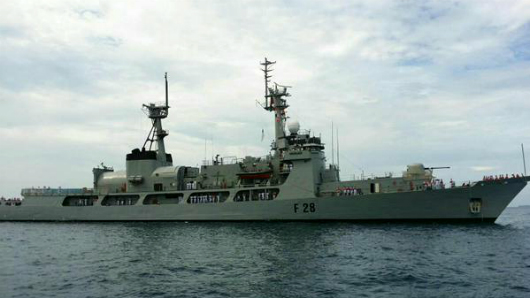The People’s Majlis is set to vote on the dismissal of Chief Justice Ahmed Faiz and Justice Muthasim Adnan at an extraordinary sitting on Sunday.
The opposition Maldivian Democratic Party (MDP) has called for protests against the vote and issued a three-line-whip calling on its 23 MPs to be present for the vote.
The MDP has declared the Judicature Act amendment reducing the seven-member Supreme Court bench “unconstitutional” and announced it will challenge the move at the Supreme Court.
Faiz and Muthasim’s dismissal appear likely as ruling Progressive Party of the Maldives (PPM) and coalition partner Maldives Development Alliance (MDA) control 48 seats of the 85-member house.
Parties opposed to the move, the MDP and Jumhooree Party (JP) control 23 and 12 seats respectively.
Judges can be voted out by a two-third majority of MPs present and voting. Faiz and Muthasim have formed the dissenting opinion in several controversial cases, including the Supreme Court’s decision to annul the first round of presidential polls held in September 2013.
MDP divided
MDP chairperson Ali Waheed on Thursday called on the JP to stop “the attempt to bury democracy in the Maldives.”
Meanwhile, opposition leader and former President Mohamed Nasheed in a tweet today said the biggest threat to the Maldivian nation is MPs who accept bribes.
Reliable sources have told Minivan News opposition MPs are being offered MVR2.5 million (US$162,000) each to be absent from the Majlis during the vote.
MDP MP and deputy Speaker Reeko Moosa Manik has said he will abstain from any vote on the Supreme Court bench reduction.
“I do not believe we have to come out in defense of the Chief Justice,” Moosa told newspaper Haveeru on Friday.
Pointing to the apex court’s stripping of three MDP MPs of their seats in the previous Majlis, the decision to annul the first round of presidential polls, and Faiz’s silence on Nasheed’s ouster in February 2012, Moosa said the Supreme Court had caused a lot of damage to MDP.
He had voted for the Judicature Act amendment against a three-whip line, claiming the move would facilitate judicial reform. Moosa has also announced he will contest the MDP primaries for the 2018 presidential polls, and has since accused Nasheed of excessive influence within the party.
MDP MPs Yamin Rasheed, Abdul Bari Abdulla, and Ibrahim Naseer are reportedly out of the country at present.
The MDP’s ‘In Defense of Democracy’ protest is to start at 9:00 am outside the People’s Majlis.
Dissent within PPM?
PPM MP for Kulhudhuffushi Mohamed Nasheed had abstained from the vote on the amendment on Wednesday. Haveeru has since reported of dissent within the PPM regarding the decision to reduce the Supreme Court bench.
When some PPM MPs spoke out against the amendment before it was put to vote, PPM Deputy Leader and Tourism Minister Ahmed Adeeb warned MPs that votes against the amendment would be seen as failure to support the government, Haveeru said.
Adeeb reportedly refused to answer why the government was seeking to reduce the bench.
Nasheed and Malé MP Ahmed Mahloof voted against a three-line whip on the amendment, an anonymous PPM MP told Haveeru.
PPM Parliamentary Group Leader Ahmed Nihan has said “there is no harm” in reducing the Supreme Court bench and described the move as a door to judicial reform.
Speaking to Haveeru, Nihan said: “The constitution does not explicitly state the number of judges on the Supreme Court bench. It doesn’t say whether it’s 13 or seven. There is no legal barrier to reducing the Supreme Court bench.”
The PPM and MDA had pushed the amendment through with 46 votes on Wednesday.
Within hours of its ratification on Thursday, the judicial watchdog Judicial Services Commission (JSC) recommended Faiz and Muthasim’s dismissal.
Article 154 of the Constitution says a judge can only be dismissed if the JSC finds the judge guilty of gross misconduct and incompetence and if a two-third majority of MPs present and voting votes out the judge.
The JSC has declined to reveal any details of Thursday’s meeting, claiming members had decided to keep proceedings confidential until the Majlis vote.
Nihan said he could not challenge the JSC’s decision to dismiss the judges.
“When they say these are the two judges who should be dismissed based on their standards, then we will have to go ahead with it,” he said.
He also expressed surprise at MDP’s opposition to the move, claiming former President Nasheed had called Chief Justice Faiz a liar.
Likes (1)Dislikes
(1)Dislikes (0)
(0) 
